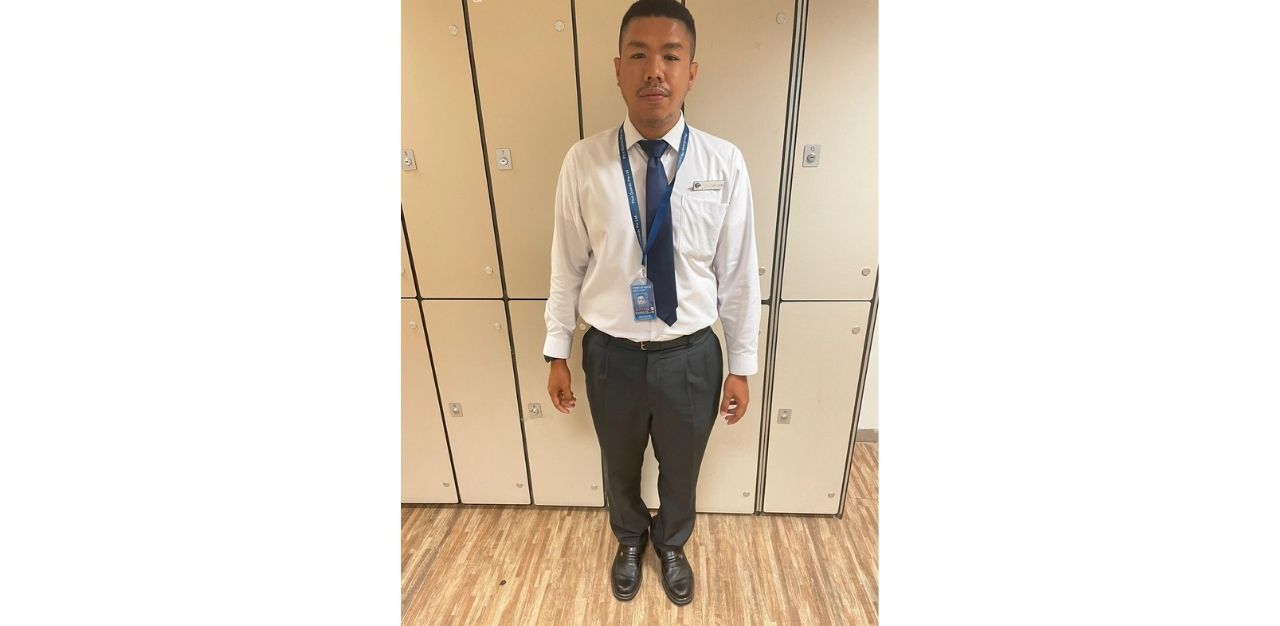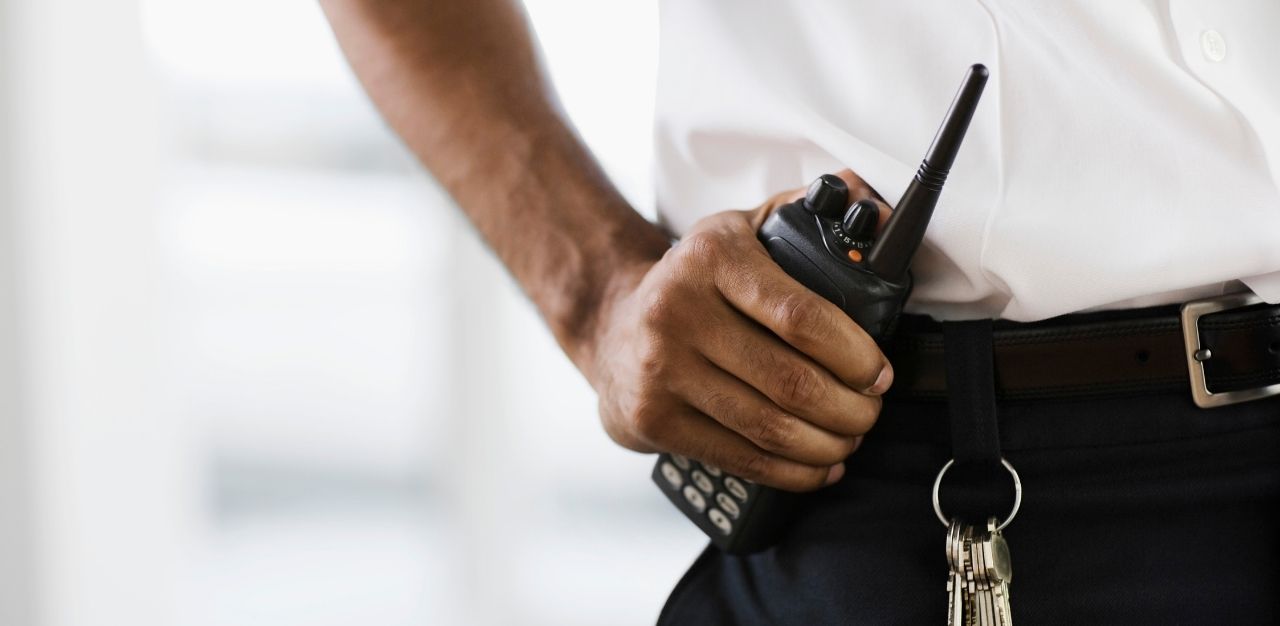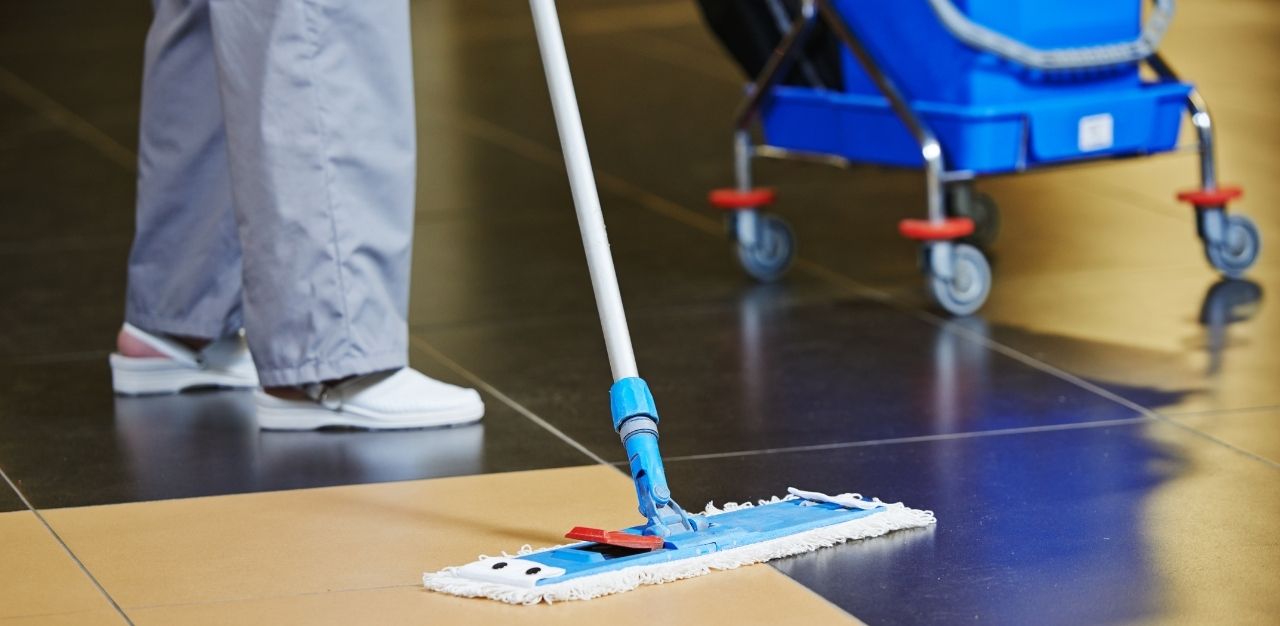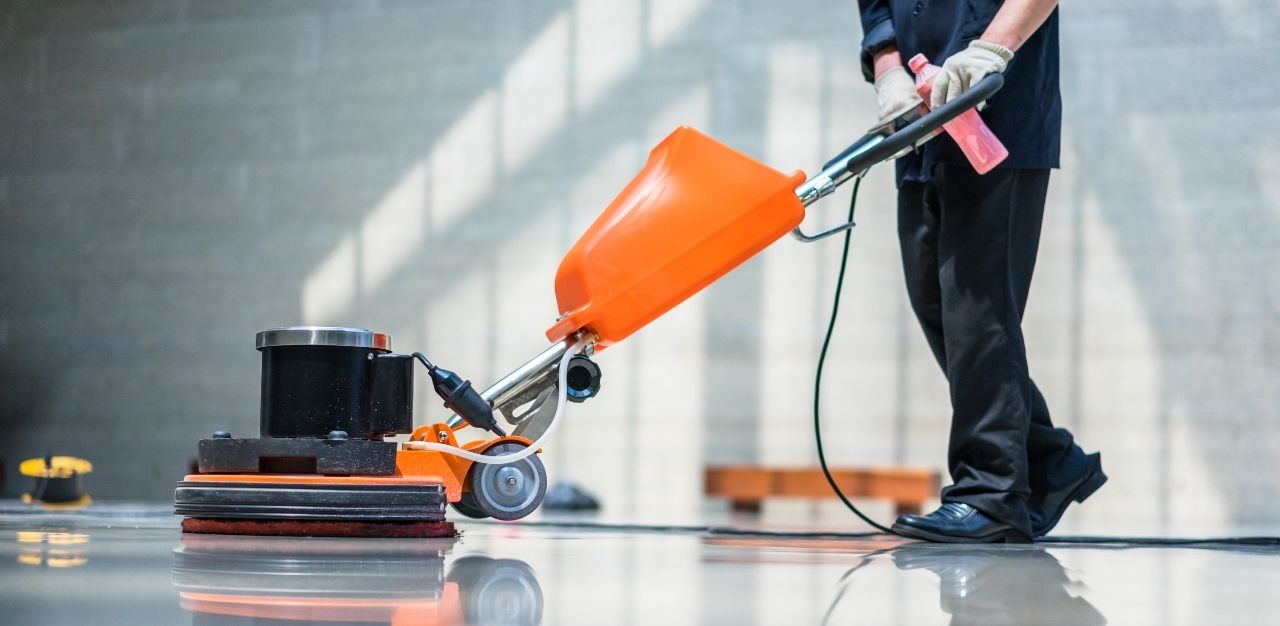Working as a security officer was not 24-year-old Mohd Azmi bin Mohd Amran’s first choice.
His hesitation was born from the perception that the security industry was only for seniors and retirees: “From what I could see, most of the security [officers] are old men, aged 60 plus.”
Yet, it was a career determined by unforeseen circumstances.
After completing his National Service, Mr Azmi was trying to get a full-time job when he ended up in an accident that forced him to take an extended amount of time off to recover.
While he had initially wanted to join the uniformed services as an AETOS officer, or by signing on as a Ground Response Force officer with the Singapore Police Force, the accident put a dampener on his plans. After waiting over six months for a response to no avail, he received a call from security firm Pico Guards – which specialises in commercial, industrial, and retail security – for an interview early this year.
Amid an uncertain economic climate during the pandemic and a stretch of unemployment, Mr Azmi decided to give the security officer position a shot.
He says of his experience thus far: “It’s not bad, actually. It’s the same thing as AETOS, the only difference is that we don’t (carry) arms. That’s why I decided to stay as a security officer.”

Mr Azmi is just one of many working-age youths who have joined the security industry, during the pandemic.
Says Jane Franklin, the Business Development Manager for Pico Guards: “We had a good number of millennials or younger workers who were previously doing [food delivery], that have come on board to security.”
Today, its workforce is predominantly made up of younger individuals, comprising more than 300 officers between the ages of 21 and 45, as opposed to fewer than 100 between the ages of 60 and 70.
Despite the shift, the stigma surrounding being a security officer remains, admits both Ms Franklin and Mr Azmi.
Security officers as ‘old men’ who ‘do nothing’
When he first joined the industry, Mr Azmi admits that he had his fair share of reservations: “When I joined, [I thought that] the mindset of talking to old men is really different. Let’s say, you are working with someone of the same age, you can easily talk to them but with old men, it’s very hard. Sometimes, they don’t get what we are trying to say.”
But his worries were unfounded: “I was quite surprised that they [the older workers] can understand the younger generation, and also give us life and work advice.”
Another preconceived notion, adds Ms Franklin, is that security officers do nothing: “What people don’t see is that it takes a lot of physical and mental strength for every security officer to maintain their position, and remain focused on their surroundings, looking out for possible threats, let alone do it for hours.”

She continues: “A lot of people seem to think that security officers are not educated or not licensed, but the truth is security officers are licensed and they are also very highly trained to deal with a variety of scenarios and possible threats.”
In fact, security officers are required to go through a minimum of three Workforce Skills Qualification courses, including learning to recognise terrorist threats and handle security incidents, before being issued a security officer license.
Another common misconception, observes Ms Franklin, is that roles in the security industry serve only as a “stopgap job rather than a career”.
When in fact , the security industry is covered under Singapore’s Progressive Wage Model (PWM). Under the PWM, a five-level career progression model has been developed to ensure that security officers have a clear career path.
Mr Azmi acknowledges that being a security officer is actually a “fast progress job”. Since joining Pico Guards around March, he has been sent for courses to upskill himself, and is hopeful for his future in the industry. “For the long-term, maybe I can become the operations manager,” he says.
He also feels that being a security officer is a better fit for him, compared to more popular jobs among the younger generation at the moment such as food delivery riders and private-hire drivers.
“You need self-discipline,” he says. “For security, you are working with a team… [With private hire], you can do your own time, own target, so it’s not a fixed income. Security is a fixed job.”
It is not all rosy, however. Mr Azmi admits: “Pay-wise, I can only say it’s okay, not to my expectations.”
Under the PWM, security officers are paid a minimum of S$1,400 (USD$1,039) a month (as of 2021), which will be raised to S$1,530 (US$1,138) by 2024. A forum letter penned by Ikhsan Suri, the Executive Director of Security Association Singapore, a trade association in the security industry, suggests that this is a point of concern.

Within his letter, he clarified that most, if not all, security officers draw a gross wage of S$2,400 (US$1,786) a month, as opposed to the minimum stipulated wage by the PWM, but only because they work up to 72 hours of overtime during that same period.
He thus suggests: “PWM increases should be accelerated to deal with the fact that security officers feel the need to work such long overtime hours, just to earn a reasonable wage.”
Despite the less-than-desirable pay, Mr Azmi is still content being in the security sector for now: “Overall, it’s okay. If your workplace is healthy, everything will go smoothly.”
But comfortable as he is with being a security officer, Mr Azmi shares that he regularly fields questions from young people in their mid-30s on why he is one.
“Some of them also say, ‘This guy looks too young to be a security officer’,” he says.
While these comments were disheartening at first, and nearly pushed him to give up on the security industry, advice from his friend encouraged him to persevere: “My friend said wherever I work, even if I’m a Grab driver or even a manager, someone or somehow, people will try to find that one thing to look down on you.”
He continues: “If you really want to take things to heart, it’s really hard for you to progress… Now, this is my job. This is what I want, so I just ignore them. Sometimes, to be honest, I will still feel paiseh [embarrassed], but I will slowly progress.”
At the end of the day, he says: “Work is still work, we are putting food on the table.”
Cleaning is a ‘low-class job’
While the security industry has seen a spike in younger workers during the pandemic, the same cannot be said for the cleaning industry.

Tan Hui Bin, an Operations Executive at commercial cleaning firm A1 Facility Services, shares that while they have young workers on their roster, most of them are foreigners. These workers, she explains, are typically scheduled for home-cleaning jobs, as homeowners prefer younger workers. For local hires, the workers are usually 40 and up, and are usually delegated to office-cleaning jobs.
When asked about hiring young locals, Ms Tan says: “We can open up for the younger generation, as long as they’re willing to give it a shot.”
But she acknowledges that there are several factors that may hinder young adults from joining the industry, as opposed to other jobs like those within the gig economy.
“[Younger workers] feel more drawn to [being] delivery riders and private-hire drivers, because they can be their own boss,” she explains. “They don’t have someone above them telling them what they can or cannot do… Whereas for cleaners, you still have to answer to the boss.”
She also highlights that being a cleaner requires one to work on a fixed schedule every day, with limited amounts of medical and annual leave, which could be another deterrent.
Finally, money is a concern.
She says: “[Private hire] drivers and delivery drivers get paid better than cleaners… If the salary of cleaners can be increased, that may attract more people.”
But salary increments come with its own set of difficulties, notes Ms Tan, as it means the company’s clients have to pay more for the service. Otherwise, cleaning providers, such as A1 Facility Services, are unable to increase staff wages.
“It’s a vicious cycle,” Ms Tan rues. “If that side [clients] don’t increase, our side also cannot increase, and then nothing can be increased.”
There is hope, however.
In June, the Tripartite Cluster for Cleaners (TCC) mapped out new wage levels and skill requirements for those in the cleaning industry under the PWM. With this review, higher salary increments are planned until 2029, with multi-skilled cleaners being paid a minimum wage of S$3,040 (US$2,262) by 2029, as compared to the S$1,648 (US$1,226) today. The revised wage schedule hopes to attract a younger workforce into the industry, according to TCC Chairman and Assistant Director-General of the National Trades Union Congress Zainal Sapari.
Still, the PWM has been criticised as insufficient. Ong Ee Cheng, senior lecturer at the department of economics in the National University of Singapore (NUS), and Jennifer Yao, an economics undergraduate at the same university, penned a commentary in June stating that the PWM has “two main shortcomings – coverage and speed of implementation.”
Specifically, they cite how the PWM was first introduced in June 2012, but to date, only covers 85,000 workers.
Professor Emerita of Corporate Strategy and International Business at the Stephen M Ross School of Business, University of Michigan, Linda Lim, and Associate Professor of Social Work and Director of the Social Service Research Centre at NUS, Irene Ng, echo the sentiments that the implementation has been slow.
They state that since the introduction of the PWM, the average annual increase in salaries of the three lowest-paid occupational categories, which includes cleaners, was 3.4 per cent, trailing behind the 3.9 per cent average annual wage growth of those in the highest earning occupational categories.
The recent review is, however, a step in the right direction.
Says Member of Parliament (Sengkang GRC – Workers’ Party) Jamus Lim: “I view this implementation of PWM as substantial progress that will improve the welfare of Singaporeans and Permanent Residents.”
Nevertheless, he calls for this model to be implemented in even more sectors, with quicker changes, to benefit more Singaporeans.
Pragmatic concerns aside, a longstanding perception of cleaning being a ‘low-class job’ means that the younger generation are, in general, reluctant to even consider it.
Ms Tan says a stigma persists: “They (the young) feel that this is a job for those who don’t study, or have no skills… Even though we post [job openings] online, it’s hard to get the younger generation to join us as cleaners.”
Parents also perpetuate this negative perception: “From young, parents will be like, ‘if you don’t study, next time you go be cleaner.’ So they [the younger generation] grew up with this idea that being a cleaner is not a good job. This is not a problem that can be easily resolved… This stigma is one problem that will last for many years.”

Nevertheless, she hopes that this shame can be erased over time: “As long as you’re working responsibly, you shouldn’t feel ashamed no matter what industry you are in.”
Attracting young hires through digitalisation
Besides tackling on-the-ground concerns of career progression, wages, and stigma, both Pico Guards and A1 Facility Services are also adapting to technology in the hopes of keeping their organisations relevant, while attracting younger hires.

Ms Franklin acknowledges the importance of “morphing our workplaces to accommodate the millennial generation”. She says: “If we do not, we will not be able to acquire and retain talent, which will stunt our ability to innovate.”
Thus, Pico Guards has integrated technology into the services they provide, which allows it to “deliver greater business value” for its clients, explains Ms Franklin. While, also eliminating the “pen- and paper-based world that traditionally characterises the security industry… to appeal to the younger generation.”
Likewise, A1 Facility Services is hopping aboard the digital bandwagon to keep up with the times. They have already begun to implement the usage of phone applications for job-scheduling purposes.
This is the direction that Ms Tan foresees the cleaning industry moving in as well: “I feel that maybe 10 years down the road, you can call a cleaner, like how you call a Grab. You just input in the app, and the cleaner will come down straight away, instead of the old practice where you have to make bookings for sessions. There will be more on-demand cleaning services available.”
With the industry moving in a direction that is more similar to the gig economy, Ms Tan is hopeful that this may attract more youngsters to join the industry.

Besides technological advancements, Pico Guards also provides opportunities for horizontal development within the organisation, should they be keen. This means that individuals who start out as security officers on the ground can eventually move to back-end roles, such as operations managers within the company – a real-life example provided by Ms Franklin of a worker who climbed the ranks over four years.
Roles outside of security officers are also available.
“It takes a big team of professionals to get security going,” Ms Franklin clarifies, citing the importance of roles, such as business development, operations and human resources, which may be of more interest to the younger generation.
The same applies for the cleaning industry, where Ms Tan herself is an operations executive. But, regardless of the role, Ms Tan emphasises that any young adult looking to join the cleaning industry will need to be both tech-savvy and passionate about working with seniors.
“Not everyone will have the patience to handle aunties and uncles on a daily basis. Working on the back-end…youngsters would be preferred, but they have to be someone who can communicate with the older generations,” she says.
Ms Tan also foresees new roles opening up in the cleaning industry moving forward: “One role that could come up would be someone who can teach the older generation how to start blending into the technological society.”
She elaborates: “For now, older people are not as receptive to apps and all that. So if we do roll out apps and more technology, there will definitely be someone who is needed to act as a bridge.”
Jobs for all working ages
Even as efforts are made to draw the younger generation into the industry, Ms Tan underscores the need to still retain jobs for the older generation.
“Given the current standard of living in Singapore, even the elderly may need a job to continue surviving comfortably,” she says. “To keep these jobs for them will be good, because you don’t require high education levels, and it’s not something that is very tedious, even for the older generation.”
She adds: “If people don’t hire them and they don’t have income, they may have to survive on [very little food] every day. This is the kind of situation that breaks the society, because you have to learn to take care of your elderly before your society can grow. Leaving our elderly behind is not something that society should grow into.”
And for the young who are looking for a job but are hesitant to join such industries, Mr Azmi proffers this advice: “Don’t feel paiseh about anything. At the end of the day, it’s your income, your job scope, and your responsibility to put food on the table… The correct state is to have a positive mindset in every job you do.”
Join the conversations on TheHomeGround Asia’s Facebook and Instagram, and get the latest updates via Telegram.














